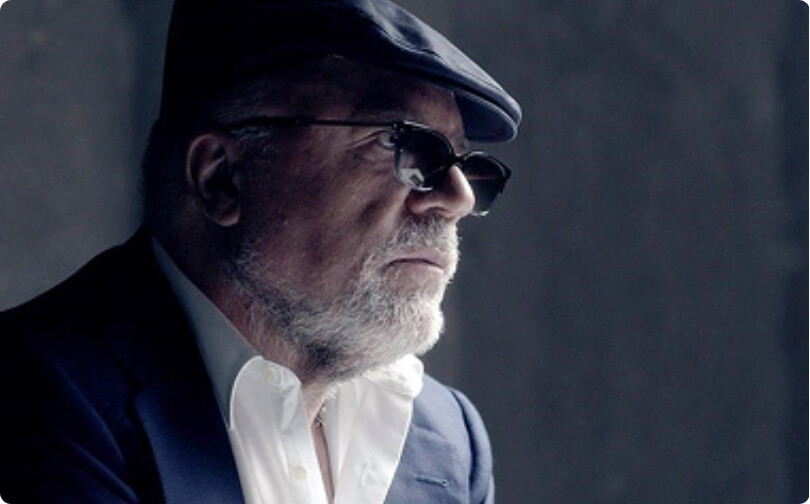SMK Lawyers is in charge of providing legal advice and legal representation in the judicial process in which the former director of “Interviú” faces several lawsuits for disclosure of secrets and other accusations linked to the investigation into the memory card and material related to Pablo Iglesias.
Click here to listen to the interview on RAC1
Below is the transcript of the interview:
– Jordi: On Tuesday, during the face-to-face with Pablo Iglesias here on El Món a RAC1, Commissioner Villarejo accused the former director of Interviú of having handed him the contents of a mobile phone belonging to one of Pablo Iglesias’s assistants, Dina Busselham. This is what became known as the “Dina case.”
Busselham’s phone had been stolen in order to extract and steal information from it, with the aim of harming Podemos at the time. That’s exactly what Villarejo said in that conversation two days ago with Pablo Iglesias.
– Interviewer 2: Well, for example, a copy of the famous phone of a collaborator of Mr. Iglesias, this Dina person and all that, was handed to me by none other than the second-in-command of Pedro Sánchez’s campaign team, who was the former director of Interviú. I didn’t know he had that material, and he told me, “There’s something important I want you to look at.”
– Jordi: Former director of Interviú, who would later go on to work for Pedro Sánchez’s government as the director of national information. That’s why Villarejo believes that when he was handed that flash drive containing information to harm Podemos, the former Interviú director was acting on behalf of the PSOE. In other words, through the former director of Interviú, what does Villarejo do? Chop-chop, he connects the dots and links the PSOE to the dirty war against Podemos. It’s true that the former director of Interviú has never wanted to talk about this matter—until today.
-A. P.: How are you? Good morning, Jordi.
– Jordi: Good morning. Let’s get straight to the point. Is what Villarejo says true? Did you give him the pendrive with the information?
– A.P.: Look, that’s not the only thing Villarejo says. I said that myself at the National Court. The first time they asked me, “Did you give him the pendrive?”—yes.
Villarejo tells a part of the truth, which is that one, and then builds a whole story within the logic of his own defense. I’m also indicted in the same case, so I’m not going to criticize him for defending himself, obviously. But first of all, in 2016, I was nobody in Moncloa.
I have never been a member of the PSOE, and I have never had any kind of relationship with the PSOE. In fact, when I arrived at Moncloa in June 2018, I joined a Secretary of State’s office where, from the Secretary of State himself to the lowest-ranking staff member, no one belonged to the Socialist Party. If you look at that office’s organizational chart now, from top to bottom, they’re all PSOE members. This is an attempt to inject politics into the matter and claim that the PSOE was involved, because it suits his defense strategy. And that’s fine—he can say whatever he wants—but I have to step up and make it clear: I have never been a part of the PSOE. What’s more, if the PSOE had truly forgotten about me after this case, I wouldn’t have gone through the difficulties I’ve faced over the past four and a half years. I find it utterly ridiculous to be linked to the PSOE when I’ve never had anything to do with them.
The only interaction I’ve ever had with Pedro Sánchez was two or three days after I started as Director General at Moncloa. I ran into him at an event, he shook my hand, said “welcome,” and that was it. Fortunately, no one told him—or he didn’t realize—that I had spent the previous three or four years openly criticizing him on Cadena SER, where I regularly appeared on the panels of Hora 25 and Hoy por Hoy. The Secretary of State asked me, “Hey, have you ever said anything outrageous about Pedro Sánchez?” I said, “Well, not outrageous, no. On air, I’ve mostly supported everyone who’s opposed Pedro Sánchez, but you can’t say I insulted him—that’s not my style.” Nothing came of it. But now, for people to claim I had some kind of connection to Pedro Sánchez, even back in 2016, is really pushing it.
Honestly, Jordi, the underlying message Villarejo is trying to convey on your show is that I called him to say I had a pendrive. But in his own statements before the National Court, he never said that—in fact, he said the opposite. This is, clearly, a media defense strategy.
It’s clear that when the oral hearing comes, he won’t be able to say that—he just won’t. But on the radio, he says it and stays completely calm. In front of the judge, he said that back then, many journalists were telling him they had the pendrive, or the contents of the phone belonging to one of Pablo Iglesias’s assistants—that many people were saying it to him. And just so you see—though I’m not sure if we should maybe save this for a minute later—my relationship with Villarejo. Because the other day, also on your station, it was suggested that we were close friends.
– Jordi: He didn’t say that.
– A.P.: Well, I think it was a show—I don’t remember the name—but I do remember the name of the person who played the recording: Ernesto Kayser.
– Jordi: Ah, Kayser said that. It was on Barça-Racul·la, yes, Barça-Racul·la with Toni Clapés, and it was Kayser.
-A. P.: Exactly, exactly. But this isn’t a journalistic criticism—it’s simply that they played a clip of a lunch I had with Villarejo in 2014. They played a snippet which, by the way, it’s curious how these clips always seem to surface when the commissioner decides to put himself back in the media spotlight. They seem to fall from the sky—or anonymously—just like the phone card of Dinamur Soreja was sent to me. Anyway, the summary they gave in that program was that we’re very close friends.
I’d actually invite you to play that clip for your listeners so that you and I, listening to it together, can conclude that we’re not friends—on the contrary, it’s a lunch where he’s introducing himself. He’s introducing himself. What I don’t quite understand is why… Well, giving people a platform is fine. In fact, you’re giving me one now, and I appreciate it. But giving someone a voice doesn’t mean whitewashing their narrative. It doesn’t mean whitewashing their narrative.
– Jordi: That’s why we brought in Artur Mas and Pablo Iglesias beforehand.
-A. P.: Yes, of course, but this… Look, this is an old story—journalist to journalist. Look, the coup attempt of October 27.
I don’t know if you remember—it didn’t happen, fortunately—but two colonels and a lieutenant colonel were arrested. They had prepared a document analyzing the press, okay? They listed, in one column, the journalists they believed wouldn’t be a problem for them if the coup succeeded. Do you think that list is useful? I don’t think so.
I had that list in my hands—it was published in Diario 16—but it was the coup plotters’ assessment of the journalists. Of course, it’s not like the journalists had called the coup plotters saying, “Hey, if you stage a coup, I’ll support you.” No, it was just their evaluation. So now we’re treating what Commissioner Villarejo says in his documents as something extraordinary and highly credible.
– Jordi: The thing is—and I always say this—Villarejo is kind of like the Joker in a deck of cards. If you’re the one holding it, it’s great. If the other guy has it, it’s a problem, right? Everyone has their own opinion about the character, but the one thing that’s clear is that behind Villarejo, there’s everything else. And “everything else” is huge. It’s this kind of massive container. And starting from that “everything else,” for example in the case of Operation Catalonia, there are many issues that no one has wanted to address, talk about, analyze, or prosecute. And I think that’s outrageous.
And it’s clear that a lot of what Villarejo says must be false. For example, when you mention Kayser—you’re talking about an audio clip, right? I have that audio clip, and we’re going to listen to it now. This clip, you say, is from a statement, you say, by…
-A. P.: No, no, it’s not a statement. It’s a lunch between a police officer—who was a source for a magazine I directed—and me. As a journalist, it’s my duty to protect my sources, not just Commissioner Villarejo, but many others, and not necessarily police officers.
– Jordi: And this was a one-time meeting with Villarejo, right?
– A.P.: In 2014, according to Ernesto Kayser, and I take that to be true. I hope it is.
– Jordi: And Kayser said you and Villarejo were very close friends.
–A.P.: No, no. He said the conversation suggested a close friendship.
-Jordi: Let’s listen to it, then.
–A.P.: Sure, let’s do it.
————————————————————————————————————————-
Audio conversation evidence:
Person 1: When you’re on the right side of the river, I don’t give a damn. No matter how important the fools on the other side think they are. I have the truth, I have the information, I have the data, I have the evidence. And I’m not as dumb as I may seem at work. So people know not to mess with me.
-Person 2: If you were dumb, you’d be dead. Right? I mean, professionally dead.
-Person 1: Yeah, yeah. And maybe in the other way too.
-Person 2: Maybe in the other way, yeah.
-Person 1: Because I’ve been in deep trouble for 20 days.
————————————————————————————————————————-
-Jordi: This is what you were referring to, right?
–A.P.: Yes, well, it doesn’t end there.
-Jordi: Right, of course.
–A.P.: Because later he says, “Whatever you need, whatever you want.” It was him introducing himself to the director of the magazine, okay? That lunch.
I’ve had contact with Mr. Villarejo, of course, because I invited him—just in case someone wants to use this as proof of something—I invited him to the Interviú parties. At Interviú parties, the reporters would tell me who they wanted invited. And through those events, we would nurture the reporters’ sources of information.
That was my relationship with him. It wasn’t a friendship, nor even a close professional relationship—just contact with a police officer that might result in something published in the magazine, because that wasn’t my job. That wasn’t my role. In fact, he even said to you, I think, that his life is transparent because everything is in his agendas, right? Yes. Well then, please—go find me in Mr. Villarejo’s agendas. Go ahead, look me up.
-Jordi: You’re not in it.
–A.P.: I think there’s one entry from 2015, where it says “Alberto Pozas is out for a few months due to an issue,” and the judge kindly decided to cut that out so my private life wouldn’t be exposed. Then in February 2016, there’s a note saying we had lunch and I gave him the pendrive—which, by the way, it doesn’t even mention, but anyway, same difference. I did attend that lunch, and I did give him the pendrive.
-Jordi: What was on this pendrive?
–A.P.: Well, the pendrive… I received it—I’d rather not go into details about my personal life. At that time, I was barely going in to work.
I had requested six months of unpaid leave for strictly personal reasons. The company told me not to worry, that I could come in when I could, and that I wouldn’t stop receiving my salary. I was grateful, of course. So I went in from time to time. I received something anonymously. Is that unusual? Maybe for people who’ve never done investigative journalism like what we did at Interviú.
At Interviú, it was common. Other editors have been investigated for anonymous information they received. I got something anonymously, we skimmed through it, and what I saw was all material related to Pablo Iglesias. Material about Pablo Iglesias. That is, documents from the European Parliament, evaluations about him, and a lot of photos—tons of photos of him.
-Jordi: Sorry, a lot of photos of him? You mean like candid, stolen-type pictures?
–A.P.: No, posed and funny photos. Pictures of the five MEPs.
-Jordi: And this was on the pendrive from that woman?
–A.P.: Well, the pendrive… What I actually received was a memory card.
-Jordi: Right, a memory card, got it.
–A.P.: That’s what I saw. At that moment, I made the decision not to publish anything. During those months, I had prepared a report.
-Jordi: Was there anything illegal?
–A.P.: From what I saw? No.
-Jordi: Illegal, I mean. Because there could be many things that are immoral too…
–A.P.: No, I didn’t see anything immoral either.
I don’t know if you’re referring to more erotic photos and such. I didn’t see anything like that, of course.
-Jordi: No, no. First of all, he can have whatever erotic photos he wants.
–A.P.: Of course. But also, I should say—I saw the material. I didn’t see anything like that.
-Jordi: So, you didn’t see anything illegal in it.
–A.P.: Maybe we looked in the wrong folders, but it was all documentation from the European Parliament—speeches, contacts, and lots of photos of them.
Photos of Íñigo Errejón, Teresa Rodríguez—I think she was around back then—Pablo Iglesias… That was the material. When I went to testify at the National Court, the prosecutor and the judge asked me if I had seen any risqué photos. I said no. They asked, “Can you come closer?” I approached a computer, and they showed me a photo of Pablo Iglesias buttoning up a shirt. “Have you not seen this?” I said, “I don’t remember seeing it, but if you consider that risqué—and you’re asking the editor of Interviú—then we’re playing completely different games.” That’s what I saw, and that’s why I decided not to publish anything, because it would have been an attack on Podemos.
At that time, I had just submitted a proposal to the Board of Directors to start shifting Interviú, to gradually phase out the nude covers, and to adopt more of the spirit of the 15M movement, which was very relevant at the time, as part of renewing the magazine. So of course, it was obvious I wasn’t going to do anything reckless with a European Parliament report that, at best, I could barely squeeze something out of. That’s why I decided not to publish it, and since Pablo Iglesias appeared in it, I told the editorial director that I thought it should be returned to Pablo Iglesias.
From there, I don’t know how many days passed until it was handed back to him. The thing is, when Pablo Iglesias went to collect it—or so I’ve been told, because I never saw him—the editorial director told me (and he didn’t see him either) that Antonio Asensio gave him the card and a card reader, put him in an office to view the content, and Iglesias left after half an hour or 45 minutes.That’s what the Grupo Z executives have stated in court. But none of them were told that the material came from a theft. You know? At that moment, on that specific date, the only person who knew the memory card might have come from a theft was the one who took it. The one who took it—but he didn’t tell us anything.
-Jordi: Okay, one question—why did you give the card to Villarejo?
–A.P.: Right, that’s the second part, which obviously interested the investigating judge and the prosecutors quite a bit. The deputy editor came to me—and I swear I’m not revealing any secrets here, this has all been declared, not just by me but by the other people involved.
The deputy editor—who at that time was the one who, almost by obligation, had contact with Villarejo—told me that Villarejo had called him and said he knew we had the material and wanted it because he was investigating Podemos. Well, I took that at the time as one of the many police and judicial requests we had historically received at Interviú. There’s an impressive list of such requests. So I said, fine, let’s give it to him, under the assumption of a police request. And look, this isn’t just some throwaway idea—when the Supreme Court dismissed the indictment against Pablo Iglesias, it even suggested that what happened with us could be considered entrapment.
Because, you know, if a cop approaches you and buys drugs, you can’t be prosecuted because they provoked your crime. If a cop comes and asks for material, it could be considered entrapment—or not.
That will be up to the National Court to decide when the time comes. But this is how it happened. So, for Villarejo to say on your show that I called him—after having said in court that I didn’t call him—is exactly what I’m pointing out. Well, he needs to clear his name, of course, but I also have the duty to remind people that it didn’t happen that way.
-Jordi: Are you going to use these statements he made for…?
–A.P.: No, no—and for one simple reason. Let me explain quickly and you’ll get it. If someone lies, I can take legal action. But if someone under indictment lies about their own case, you can’t take action because they’re exercising their right to a defense. If Villarejo says Florentino Pérez bought off referees, then maybe Florentino Pérez could sue him, because that’s not part of a judicial case.
-Jordi: I get it, but if the judge hears these statements—where in court he’s allowed to lie, but then says something totally different on the radio?
–A.P.: No, the only thing that has to happen is that he repeats that story in court. That’s the only step left—the oral hearing. The judge will have to assess whether he’s lying, whether his new version has any basis. And since it doesn’t, between you and me—he’s not going to say it in court.
That story works for yesterday, today, tomorrow—whatever we want to drag out of it. In the end, people need to understand, and I don’t think it’s that hard: what I did in this case was journalism. From my time as director of Interviú, I’ve walked away with two things:
One, eight duodenal ulcers, which were taken care of by Dr. Acedo. And two, 21 criminal complaints for disclosure of secrets—of which 20 have already been ruled in my favor, thanks to Sergi Mercé Klein, a well-respected lawyer in Barcelona who’s won every single one. We just have this one left—the last one, which he also recently won.
Keep in mind, Interviú shut down five years ago, but these things live on—that’s the legacy you inherit. And we’ve still got this one. I’m confident he’ll win it too.
I really don’t think this case has much of a future.
-Jordi: One last question. Have you ever spoken to Pablo Iglesias personally about all this?
–A.P.: No, I received a few messages from people close to him at the beginning.
They told me, “Stay calm, hang in there, it’ll blow over in three days.” And here we are, four and a half years later. Those “three days” have turned into a request for three years in prison.
So, well—look, since this is the last question, let me say: both Pablo Iglesias—sorry, not Pablo Iglesias—Podemos, the prosecutors, and initially the judge, believed they had found the media link to the organized criminal group they were investigating through the “Tándem” case. They carried out all the appropriate investigations. They were looking for, and clearly stated this in their documents, people like Eduardo Inda (OK Diario), Esteban Urquieta (El Mundo), José María Olmo (El Confidencial)—that’s who they were after.
But they ended up—what bad luck—with a journalist who even has a left-wing sensibility, who appears on panels as a left-leaning voice. So the prosecution backed off from that line pretty early. Podemos, I understand them—they have a political agenda—did not back off, and haven’t even withdrawn the accusations in their most recent filings. They still think the Dina case will lead them to a media conspiracy. I’d love it if they did uncover a media conspiracy. I really would.
Because I have no problem with that being investigated. But it won’t be through me—and they already know that. The problem is, we’re dealing with a case investigating a criminal organization. So you tell me—how does being the director of Interviú make me a member of a criminal gang, or a participant in their schemes?
But hey, that’s what the courts are for, and we’ll have to defend ourselves at trial. And we will—and we’ll win.
-Jordi: Alberto Pozas, thank you very much, and best of luck.
–A.P.: Jordi, thank you so much. All the best, thanks. Take care. A hug.
-Jordi: Alberto Pozas, I repeat, was the director of Interviú. He wanted to speak today, here. He says he never talks about this issue—never. But today he wanted to do it here, on El Món, after what Commissioner Villarejo said last week. Maybe next week we’ll also have more measured statements.




